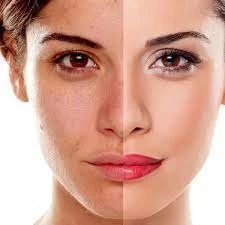Pigmentation issues such as dark spots, melasma, and uneven skin tone can affect individuals of all ages and skin types. While traditional remedies and over-the-counter products offer some relief, advanced pigmentation treatment methods have emerged to address these concerns more effectively. In this article, we delve into cutting-edge approaches that dermatologists and skincare experts are utilizing to combat pigmentation issues and restore skin clarity.
Laser Therapy: Laser therapy has revolutionized the treatment of Pigmentation In Dubai disorders by targeting melanin-producing cells in the skin. Various types of lasers, including Q-switched lasers and fractional lasers, are used to break down pigmented lesions without damaging surrounding tissue. This precise targeting allows for the removal of unwanted pigmentation, resulting in clearer and more even-toned skin.
Chemical Peels: Chemical peels are another popular option for treating pigmentation irregularities. These peels utilize chemical solutions, such as glycolic acid, salicylic acid, or trichloroacetic acid (TCA), to exfoliate the outer layers of the skin and promote cell turnover. By removing damaged skin cells and stimulating collagen production, chemical peels can reduce the appearance of pigmentation and improve overall skin texture.
Microdermabrasion: Microdermabrasion is a non-invasive procedure that uses a diamond-tipped wand or fine crystals to gently exfoliate the skin. This exfoliation helps to remove dead skin cells and stimulate circulation, resulting in a brighter and more even complexion. While microdermabrasion is less aggressive than laser therapy or chemical peels, it can still be effective in treating mild to moderate pigmentation issues.
Topical Treatments: Advancements in skincare formulations have led to the development of potent topical treatments for pigmentation disorders. Ingredients such as hydroquinone, retinoids, vitamin C, and niacinamide have been shown to inhibit melanin production, fade dark spots, and even out skin tone. Prescription-strength formulations are available for those with more stubborn pigmentation concerns, offering targeted and long-lasting results.
Combination Therapies: In many cases, a combination of treatment modalities may be the most effective approach for addressing pigmentation issues. Dermatologists often customize treatment plans that incorporate multiple techniques, such as combining laser therapy with topical treatments or chemical peels. By targeting pigmentation from multiple angles, combination therapies can deliver comprehensive and noticeable results.
Conclusion: Advanced Pigmentation Treatment methods offer new hope for individuals struggling with skin discoloration. Whether through laser therapy, chemical peels, microdermabrasion, topical treatments, or a combination of these approaches, achieving clearer and more even-toned skin is within reach. Consultation with a qualified dermatologist or skincare professional can help determine the most suitable treatment plan based on individual skin type, concerns, and goals. With the right approach, overcoming pigmentation issues is not only possible but can also lead to renewed confidence and a radiant complexion.


